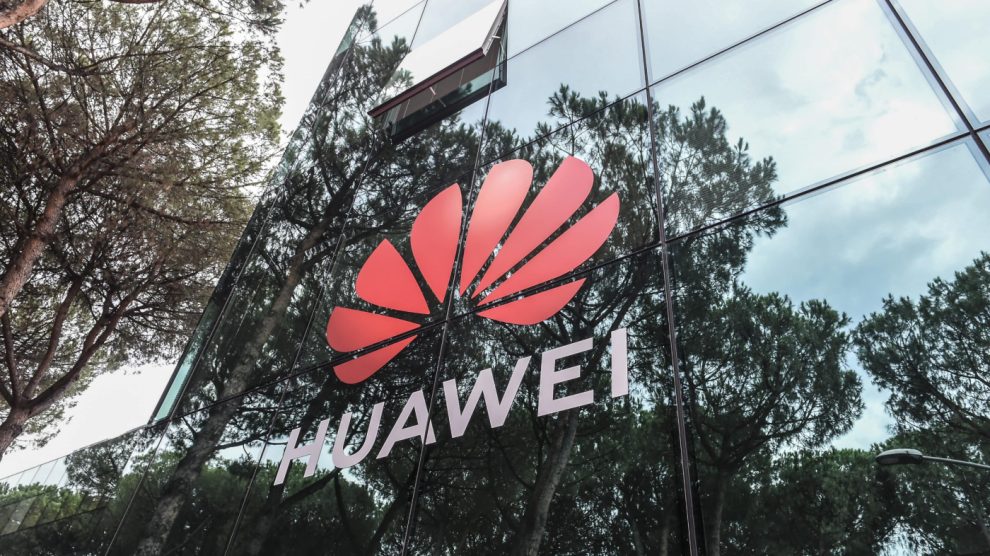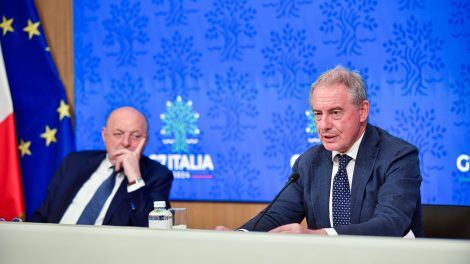China’s changing tactics. Much like Chinese diplomacy, which has shifted to business talk, Huawei is changing its core messaging in Italy. Forget 5G networks: today, the State-controlled tech giant talks of biodiversity, with projects launched with the WWF, or innovation, with an eye on European funds.
- That’s part of a broader strategy, which we spotted in late 2021, which entails Chinese telecoms titans reacting to bans in some Western countries (and the Draghi-era clampdown) by softening their “wolf warrior” rhetoric.
- Huawei is especially focussed on Southern Italy – an interest mirroring China’s broader interest in the region, revolving around Taranto and its seaport. And it’s working to extend its presence and influence through purpose-made initiatives.
One: tech for university students. On Tuesday, the University of Campania Luigi Vanvitelli joined the Huawei ICT Academy. The partnership will give students, lecturers and employees of the university access to a comprehensive training programme, ranging from the design and development of computer networks to computer systems management and IT security.
- The atheneum “has been investing heavily in technological innovation, which has become one of the priorities of governance,” explained Rector Gianfranco Nicoletti, who stressed that familiarity with information tech “is essential for the new generations” and called the University’s adherence to the programme “a great achievement,” a “necessary starting point” and a “synergy that we hope will be increasingly consolidated and expanded over time.”
Two: startups and innovation. On Wednesday, the University of Naples Federico II hosted Innovation China Day as part of Startups Go Global (an international acceleration and entrepreneurial training programme promoted by Spici Srl and Noesi Evolution).
- It was attended by “representatives of the Italian and Chinese entrepreneurial and academic worlds” who recounted “their experiences of collaboration between Italy and China,” according to the organisers.
- Attendees included Liu Jianzhou, Vice Councillor for Science and Technology of the Chinese Embassy in Italy; Francesco Boggio Ferraris, Director of the Academy of the Italy China Council Foundation; Huawei’s Fabio Romano, Head of Industry ecosystem development, who hosted “Testimony of a great company: Huawei”; and Diego Chiantone, Cloud Business Development Manager, also at Huawei.
A Huawei platform… This is not the first cooperation between Spici Srl and Huawei. Last week, for instance, they jointly launched the second edition of the Acceleration for Change programme, aimed at startups, spinoffs, SMEs and independent software vendors “interested in developing and validating in the European Huawei Public Cloud environment innovative products, technologies, systems and processes in the fields of cloud computing, artificial intelligence and machine learning.”
… and the Chinese link. According to the website, Spici Srl is part of the International Technology Transfer Network, supported by China’s Ministry of Science and Technology and led by the China Association for International Science and Technology Cooperation, which “aims to foster international technology transfer.”
- That’s a central element of Made In China 2025, the programme through which Beijing wants to achieve global dominance in high-tech production.
A name and a face. One of the founders of Spici Srl is Enrico Iaria, who spent ten years in Shanghai in the field of innovation and in 2018 was nominated by Forbes China – as he proudly points out on his CV – “among the 30 most influential Under 30 innovators in China, the only Italian ever to receive such recognition to date.”
- Since 2018, according to the document, he has been “collaborating in the programmes of innovation and scientific cooperation, digital transformation and business acceleration/development” of key Italian ministries – Education, Research and University; Foreign Affairs; and Economic Development. In this context, he also was “coordinator of projects in the international sphere.”
Tehran, too. In June 2021, Spici signed an agreement with the Iranian Association for Management of Technology and Innovation and the International Technology Transfer Network with the aim of co-creating a joint technology cooperation and innovation programme between Italy, China and Iran.




